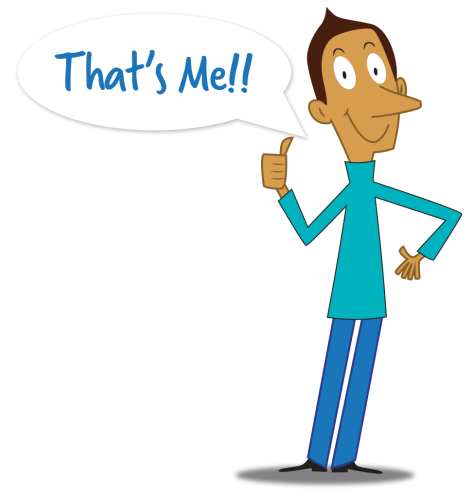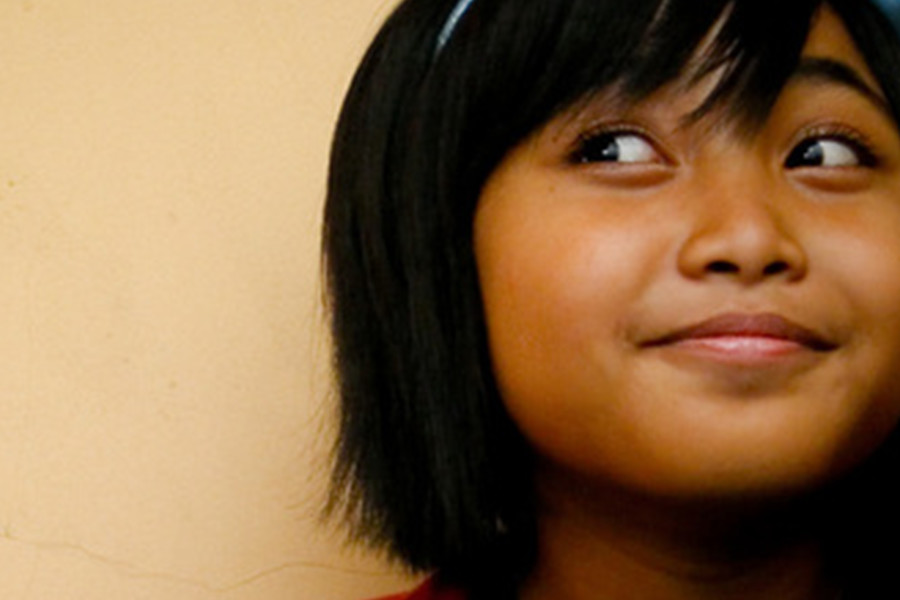
How can I stop worrying about what others think of me?
SHARE THIS PAGE WITH YOUR FRIENDS
TIPS for Being Yourself:
- Spend some time figuring out who you really are. It may sound silly, but deep down inside you may not really be the person you’re pretending to be. If you’re pretending to be someone you’re not just because you think everyone expects you to be that person, you’re better off spending your energy being the person you were made to be! Not everybody will love you, but some will, and that’s all you need. By the way, your personality and interests may change over time, so don’t think you’ll always be the exact person you are today. Be flexible and see what the future holds!
- Never, ever try and force yourself to become exactly like someone else. It’s OK to have role models, but they aren’t you. Adopt the best from what these people have to offer but never at the expense of being your best self.
- Find fun and appropriate ways to let the real you shine through. Add an item of clothing or other accent to reflect your personality and interests. With your parents’ permission, decorate your room to remind you of who you really are. Let a notebook cover give a glimpse into the deeper you.
- Do battle with WOT syndrome: “What Others Think.” You will never be the person everyone else wants you to be, so don’t bother trying. Yes, there are certain traits—kindness, honesty, forgiveness, and others—that will always serve you well. But if you’re naturally shy, you may want to avoid running for class president. If jokes aren’t your thing, don’t try to become the class clown. Be yourself and don’t spend your energy worrying about “what others think.”
- Find ways to discover more and more about whom you were made to be. Books, websites, teachers and other trusted adults can all give you more clarity about the real you. Explore subjects and activities that you think reflect your deepest interests. Ask an adult what they think your natural gifts and personality traits might be. Make finding out more and more about you an exciting adventure!
STORY
Throw away the mask
Trying to fit in made Olivia's life much too confusing
by Olivia Gregory

Why do you look like that?” The first day I was asked this question is permanently etched into my mind. I was in first grade, coloring and minding my own business, when Amanda approached me. Her question caught me off guard and baffled my 6-year-old mind.
“Like what?” I managed to choke out.
“Like that. Your hair and your skin and your face—you just look . . . weird.”
“I don’t know,” I answered, and I honestly didn’t. I hadn’t even thought about it up till then.
Amanda went back to coloring with her friends, but the question stayed in my mind all day. As I was going home, I repeated it to my mother. “Why do I look like this?”
My mother seemed baffled too. “What do you mean?”
“I look so different from the other kids.”
“Because God wanted to make you extra-special,” she replied.
That answer satisfi ed me as a little kid, but as I grew older I noticed there were other things that made me different. I definitely stood out among my peers. It wasn’t long before I found out the real reason I had darker skin, fuller lips, more tightly coiled hair, and other differences. I was something called “Black,” and most of my peers were something called “White.” Some of them were neither, but they were from such exotic places as Vietnam or Mexico or India. They seemed to fi t in with the “White” people more than I did. I looked like the complete opposite!
I was pretty self-conscious about it. I stayed quiet and tried to fade into the background. That was hard, because being “the smartest kid in class” makes you almost impossible not to notice. Then I got glasses, and everyone would call me “ugly” and “nerd.”
I started to get made fun of a lot. “You look like you stayed in the sun too long.” “Your lips look like they’re swollen.” My hair was the main thing they made fun of, and I’d try to cover it up. I felt ashamed of how I looked. Every day I prayed, God, please make me look different!
My mother didn’t know how I was feeling, but she always used to call me “beautiful.”
It never made me feel any better, because . . .
well . . . it was coming from my mom. I always wished that someday it could come from someone else. I continued to live in the shadows until fourth grade, when I met Lauren and Natalie. They looked like me in some ways but like the other kids in other ways. Now that I’m older, I know the proper term for them is “biracial,” but we always used to call them “zebras”—Black and White. They accepted the term, though.
Even though they were Black and White, everyone seemed to accept that Natalie counted as “White.” She’d hang around the other kids, act like them, and pretty much mimic them. Lauren was different. She accepted that she would never be like anyone else. Unlike Natalie, she kept her hair unstraightened, so it looked like mine. She had her own character, and she got along with almost everyone. She actually chose to become close friends with me, though.
I told her how I felt one day.
“Everyone always talks about my hair and stuff. I wish I could go to a different school.”
Lauren replied with her blunt honesty:
“You should ignore them. I like your hair. And don’t go to another school—I’ll be lonely.”
Repeating her words to myself every day helped me to make it through fourth grade with loads of confidence that I’d never had before. But in fifth grade Lauren moved away, and I was left alone again.
Looking back now, I realize that the right thing to do would have been to continue living the way I was, with my own identity. But, ironically, I didn’t feel I could do it without Lauren.
I went back to the way I had been before, only now I didn’t just try to fade into the background, I tried to fit in. I did everything I saw everyone else doing. I sucked my lips in.
I slouched. I acted dumb in class. I even asked my mother if I could get my hair relaxed like Natalie’s. She said no, but I later asked for extensions, which she considered. I thought I fit in as much as I could. I still got made fun of sometimes, but I finally had “friends.”